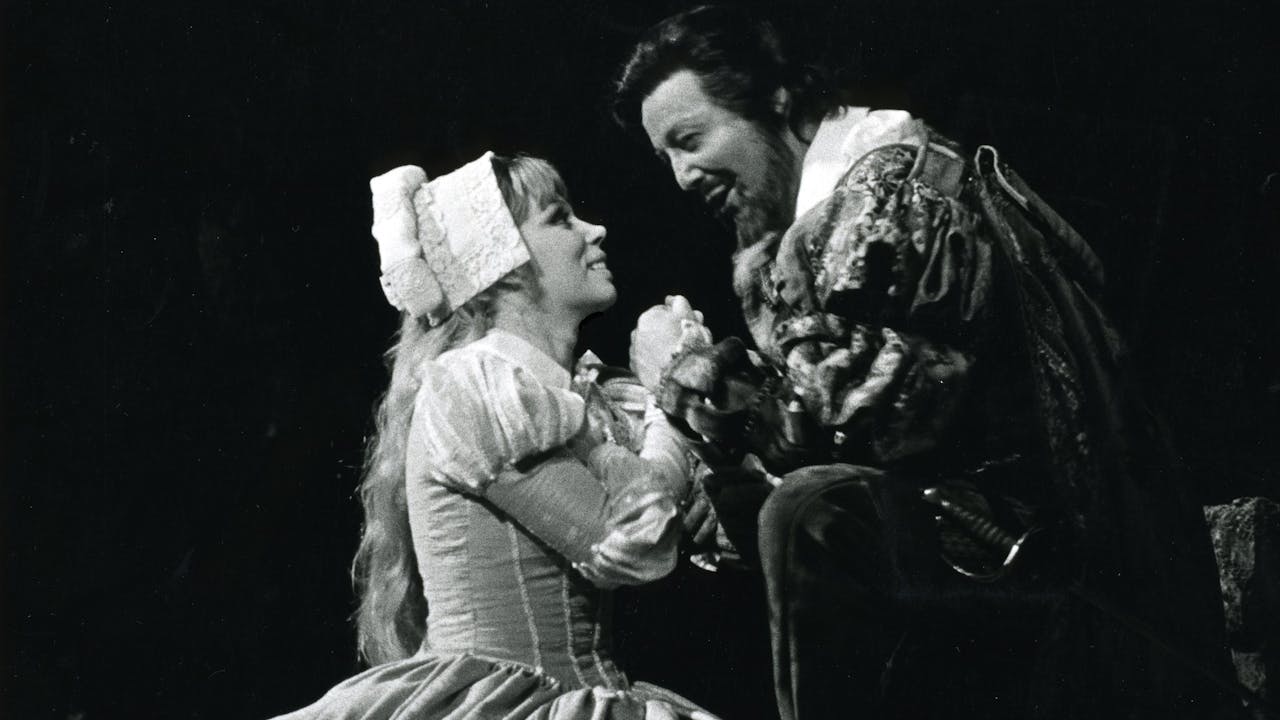The Welsh tenor was a perennially popular figure who starred frequently on the stages of the Royal Opera House across 25 years.
by Ruth Haines – Head of Opera Press
Monday 30 June 2025
Burrows was born in 1933 in Cilfynydd, Wales, on the same street as bass-baritone Geraint Evans. He started singing in childhood, but first aspired to become a professional rugby player. Though offered a contract by the Leeds Rugby League Club, he instead began his working life as a teacher. Eventually his passion for music won through, and two years after he had sung his first roles with Welsh National Opera, including Ismael in Verdi’s Nabucco in 1963, composer Igor Stravinsky invited him to sing the title role in his opera, Oedipus Rex, in Athens.
In 1967, Burrows appeared with the Covent Garden Opera Company (later The Royal Opera), singing the First Prisoner in Fidelio, under Solti. His first major role there was Tamino in The Magic Flute (1968), followed by Jack in The Midsummer Marriage, Fenton in Falstaff and Edmondo in Manon Lescaut. Later signature roles included Don Ottavio in Don Giovanni, as well as roles in operas by Donizetti, Gounod (the title role in Faust, which he sang at the Royal Opera House in 1974 and 1976, then ten years later in 1986), Massenet and Berlioz. His international career took him to the Metropolitan Opera in New York, San Francisco Opera, La Scala Milan, the Vienna State Opera and on a tour of Japan, among much else.
In his rich and diverse career, Burrows was particularly celebrated for his lyricism and purity of tone, which earned him the title of ‘the prince of Taminos’ in San Francisco. To sing Lensky in Tchaikovsky’s Eugene Onegin, he rose to the challenge of the Russian text: ‘I used transliterations from the Met Opera and managed to learn it in six weeks, ready to make a recording with Sir Georg Solti for Decca,’ he recounted. Another career highlight was the BBC Wales series Stuart Burrows Sings, which ran for eight years from the 1970s through the '80s. His final performance at the Royal Opera House was in the role of Titus in Mozart’s La Clemenza di Tito, on 10 April 1989.
Burrows continued to live in Wales, devoting time post-retirement to fundraising for charitable organisations and establishing an international voice award at Trinity College, Camarthen. He was awarded an honorary doctorate by the University of Wales at Cardiff, a fellowship by Trinity College, Carmarthen, an honorary fellowship by the University of Wales at Aberystwyth and, in 2007, the OBE. His most unusual honour arrived in 1992: Eurotunnel granted him an honorary plaque on a Le Shuttle locomotive.
